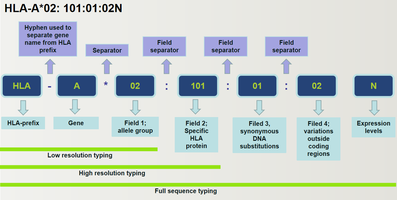New HLA Typing Service for Assessing Immune Compatibility
Press Release Summary:

- Products can be expressed on different cell surfaces in antigen presentation and immune signaling
- Suitable for research of immune-related diseases, the screening of vaccine and organ transplantations
- Application including susceptible gene detection, hematopoietic stem cell transplantation and drug allergy testing
Original Press Release:
CD Genomics Longseq Division Unveils Human Leukocyte Antigen (HLA) Typing Service
CD Genomics is a leading global life sciences company committed to providing the research community with high-quality long-read sequencing services, from Oxford Nanopore to PacBio SMRT sequencing. The Product Manager of the Long-Read Sequencing Division announced the launch of the Human Leukocyte Antigen (HLA) Typing service to support high-resolution HLA typing in a rapid and cost-efficient manner.
HLA is a group of glycoproteins that play an important role in the body’s immune system, encoded by the short arm of human chromosome 6. HLA genes are highly polymorphic, with several to hundreds of different alleles at each locus.
HLA regions are associated with the greatest number of human diseases in the human genome, and HLA typing is particularly important for assessing immune compatibility between organ donor and recipient pairs. There are more than 100 kinds of diseases related to HLA, involving autoimmune diseases, immunodeficiency diseases, allergic diseases, infectious diseases, metabolic diseases, and so on. At the same time, HLA plays a vital role in organ and bone marrow transplantation and is also associated with serious adverse reactions to different medications. Therefore, HLA typing is essential to the research of immune-related diseases, the screening of vaccine and drug target populations, the study of ethnic evolution, tissue, organ transplantations, etc.
The HLA gene products can be expressed on different cell surfaces and play critical roles in antigen presentation and immune signaling. It is closely related to disease defense, organ transplant rejections, and adverse drug reactions. Therefore, HLA typing is widely applied in susceptible gene detection for immune-related diseases, hematopoietic stem cell transplantation (HSCT), and drug allergy testing.
There are mainly three classes of HLA, including HLA class I (e.g., HLA-A, HLA-B, and HLA-C), HLA class II gene (e.g., HLA-DP, HLA-DQ, and HLA-DR), and HLA class III genes. Among them, the HLA class I and II play critical roles in immune responses, with HLA class I genes encoding antigens primarily for CD8+ T cells and HLA class II genes encoding antigens primarily for CD4+ T cells.
CD genomics utilizes third-generation sequencing technologies, including Oxford Nanopore Technologies (ONT) and Pacific Bio (PacBio), which support high-resolution HLA typing in a rapid and cost-efficient manner, contributing to a better understanding of HLA function, its causal relationship to disease, etc.
“Our analytical services include basic and advanced bioinformatics, depending on the client’s project requirements, timeframes, and budgets. Basic bioinformatics services provide de novo HLA gene assembly, HLA annotation, and HLA analysis, while advanced bioinformatics services include shared HLA type screening, significance analysis based on statistical tests, and more,” stated CD Genomics’ senior scientist.
About CD Genomics
CD Genomics focuses on innovative applications of long-read sequencing technologies, genomics analysis methods, and internet concepts in the pharmaceutical and biotechnology industries, as well as scientific and agricultural research. Equipped with advanced sequencing platforms and experienced experts, the company is committed to providing efficient, economical, and accurate long-read sequencing services, including long-read sequencing library preparation, long-read sequencing, bioinformatics analysis, etc.
Contact:
Shirley, NY 11967, USA
contact@cd-genomics.com




